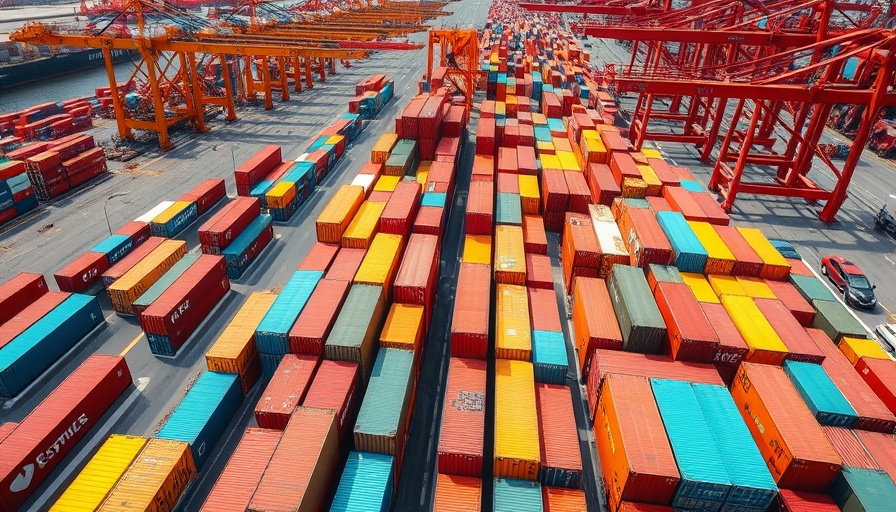
What Happens When Negotiations Go Awry?
The stakes in the ongoing trade discussions between the United States and the European Union have never been higher. With President Trump’s recent announcement of a proposed 50 percent tariff on European imports, the paradigm of trade relations has shifted dramatically. While the EU has tried to apply traditional negotiation tactics, treating the U.S. as an ally, the Trump administration operates on a different set of rules. This growing divide is not only about tariffs; it signals a deeper shift in how major economies interact in this increasingly contentious global landscape.
Navigating the Complexity of Trade
Each day, about $5 billion in goods and services cross the Atlantic, with both the EU and U.S. economies deeply intertwined. The EU, which has historically championed dialogue and established trade frameworks, is now tasked with managing an unpredictable counterpart. Many in Europe view these negotiations as an opportunity for constructive cooperation, while the Trump administration approaches them as a battleground for leverage and pressure. The mismatch in expectations could lead to fallout that reverberates through various sectors, from automotive to pharmaceuticals.
The Impact of Tariffs on Everyday Life
For the average American and European citizen, the implications of these tariffs could be significant. Higher prices on imported goods from Europe could inflate everyday expenses for consumers and create a ripple effect in the job market. Some industries may thrive, while others could struggle to cope with the increased costs of production. Companies that depend on European imports may find themselves caught between mounting prices and declining profit margins.
Geopolitical Shifts and Economic Vulnerabilities
The proposed tariffs reflect a shift in the geopolitical landscape, revealing vulnerabilities that were previously masked by amicable trade relationships. The complex web of international trade agreements that shaped the past decades is being unraveled, and both sides must now confront the reality of a trade ecosystem in upheaval. This deregulation isn't limited to a single transaction: it challenges the tenets of partnership that have defined transatlantic relations for generations.
Alternative Perspectives: Using Diplomacy to Solve Issues
While the Trump administration sees advantage in strict tariffs, many experts warn about the long-term consequences of abandoning diplomacy and traditional negotiation paths. Historical examples illustrate how trade wars can backfire, leading to economic downturns and strained international relations. Negotiation experts advocate for a return to measured dialogue, emphasizing that understanding each other's perspectives rather than using threats might yield better outcomes.
Future Predictions: The Path Forward Amidst Uncertainty
What lies ahead for U.S. and EU trade relations depends on how both administrations choose to navigate this turbulent time. Should the tariffs take effect, analysts predict that Europe might retaliate. This could lead to a cycle of escalation, where both economies suffer more in the name of pride than progress. The best-case scenario? Open channels of communication that can lead to mutually beneficial agreements without the burden of crippling tariffs.
Call to Action: Engaging in Local Trade to Outsmart Tariffs
In light of these developments, local businesses and consumers alike are encouraged to support domestic products and services, creating a buffer against potential tariffs. Communities can rally around local goods, facilitating a robust economy that lessens reliance on imported items. This strategy not only empowers local economies but also allows consumers to keep prices steady amidst international turmoil.
 Add Row
Add Row  Add
Add 




 Add Row
Add Row  Add
Add 

Write A Comment